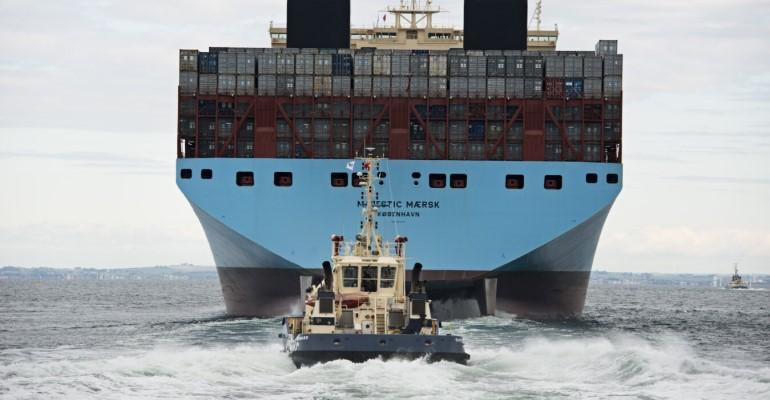The group reported Q1 revenue of $12.4bn, down from $14.2bn in the same period last year. Maersk said the decrease was mainly from its ocean segment, with increases in its terminals and logistics & services business units.
Ocean revenues were $8.0bn, down from $9.9bn in Q1 2023; the segment’s EBIT was in the red at -$161m. Average loaded freight rate for Q1 2024 was higher than the preceding month, but down on Q1 2023.
“The rerouting south of Cape of Good Hope led to higher bunker consumption and higher operating costs. [Ocean] EBIT remained negative and significantly lower than in Q1 2023 but improved compared to Q4 2023,” said Maersk.
Terminals helped drive a positive performance in the first quarter, along with higher demand, and the impact of the Red Sea crisis. With those conditions expected to continue into the second half of the year, Maersk revised the lower end of its 2024 guidance bringing its EBIT forecast between a $2bn loss and break even.
“Loaded volumes increased by 7.5% compared to Q1 2023, led by an increase in contracts primarily in Asia-Europe, America and intra-Asia trades, reflecting the higher market demand. The average loaded freight rate decreased by 18% compared to Q1 2023 and increased by 23% compared to Q4 2023, impacted by the Red Sea/Gulf of Aden situation,” said Maersk.
Cape of Good Hope rerouting brought larger bunker bills - bunker consumption was up 16% in Q1 2024, and operating costs rose by 7.0%.
The terminals segment reported a 10% increase in like-for-like volumes in the first quarter, with stronger West Coast US volumes driving North America throughput up 29% on-year. Red Sea impacts were limited for terminals, with the group’s terminal in Aqaba, Jordan, the most affected.
Copyright © 2024. All rights reserved. Seatrade, a trading name of Informa Markets (UK) Limited.
Add Seatrade Maritime News to your Google News feed.  |

